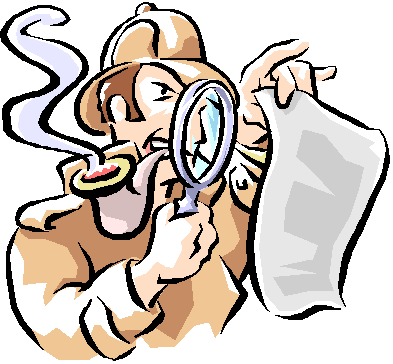|
A Web Quest Workout |
|||
|
|
|||
| Welcome | |||
| Greetings!
In order to get our day started, it would be helpful to find out what
your interests are and what experiences you have with creating web
quests. Please complete the following survey:
http://www.zoomerang.com/survey.zgi?JG06P439J1XJ2T9WNWMGTP4M (By the way, did you know you could create your own FREE surveys at www.zoomerang.com?) |
|||
| Why Use Web Quests? | |||
A
true web quest provides a tool for students and teachers to work
together to discover the answers to big ideas. There are no
"right" answers. Instead, students investigate various
resources through different roles to come to their own
conclusions. Web Quests can positively affect:
Student
Motivation & Authenticity
|
|||
| Types of Internet Activities | |||

|
|||
| Examples of Web Quests | |||
| http://edweb.sdsu.edu/webquest/matrix.html A matrix of web quests by subject and grade level. http://www.kn.pacbell.com/wired/bluewebn/index.html http://www.google.com http://www.englishhillconsultants.com/english/webquests/definingjustice.htm http://www.geocities.com/lhillclasses/webquests/justicemustbeserved.htm THIS IS NOT A WEB QUEST:
|
|||
| Parts of a Web Quest | |||
| Introduction
- Set up the situation
Task - State the problem Process - Provide the steps the students should follow in order to guide them on their way Roles - Explain the various roles within the groups Resources - Provide various resources (online and offline) that would be useful for the task Conclusion - Taking the product beyond the assignment Evaluation - Explain how the product will be evaluated
|
|||
| Creating Our Own Web Quests | |||
|
1. Brainstorming Prewriting - topics, skills, general ideas, what is the "big" question you want the students to investigate, what product will you ask the students create Gathering resources - find links that would be valuable to your students - http://www.ozline.com/learning/stumble.html Defining roles - determine the role types Evaluate your ideas using the "Go / No Go" Questions from http://www.ozline.com/webquests/prewrite.html - part 4. 2. Creating the content of your web quest Filimentality - http://www.kn.pacbell.com/wired/fil/ 3. Evaluating your web quest Look at the rubric below and compare your web quest for each category: http://edweb.sdsu.edu/webquest/webquestrubric.html 4. Publishing your web quest Publish with Filimentality - http://www.kn.pacbell.com/wired/fil/ Publish with Front Page 2000 and www.tripod.com
|
|||
